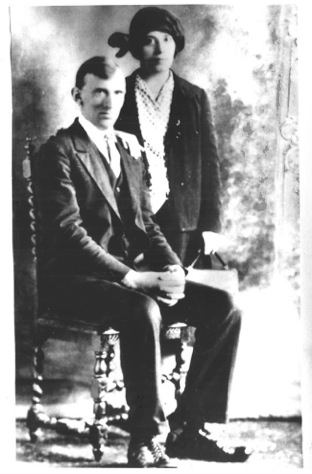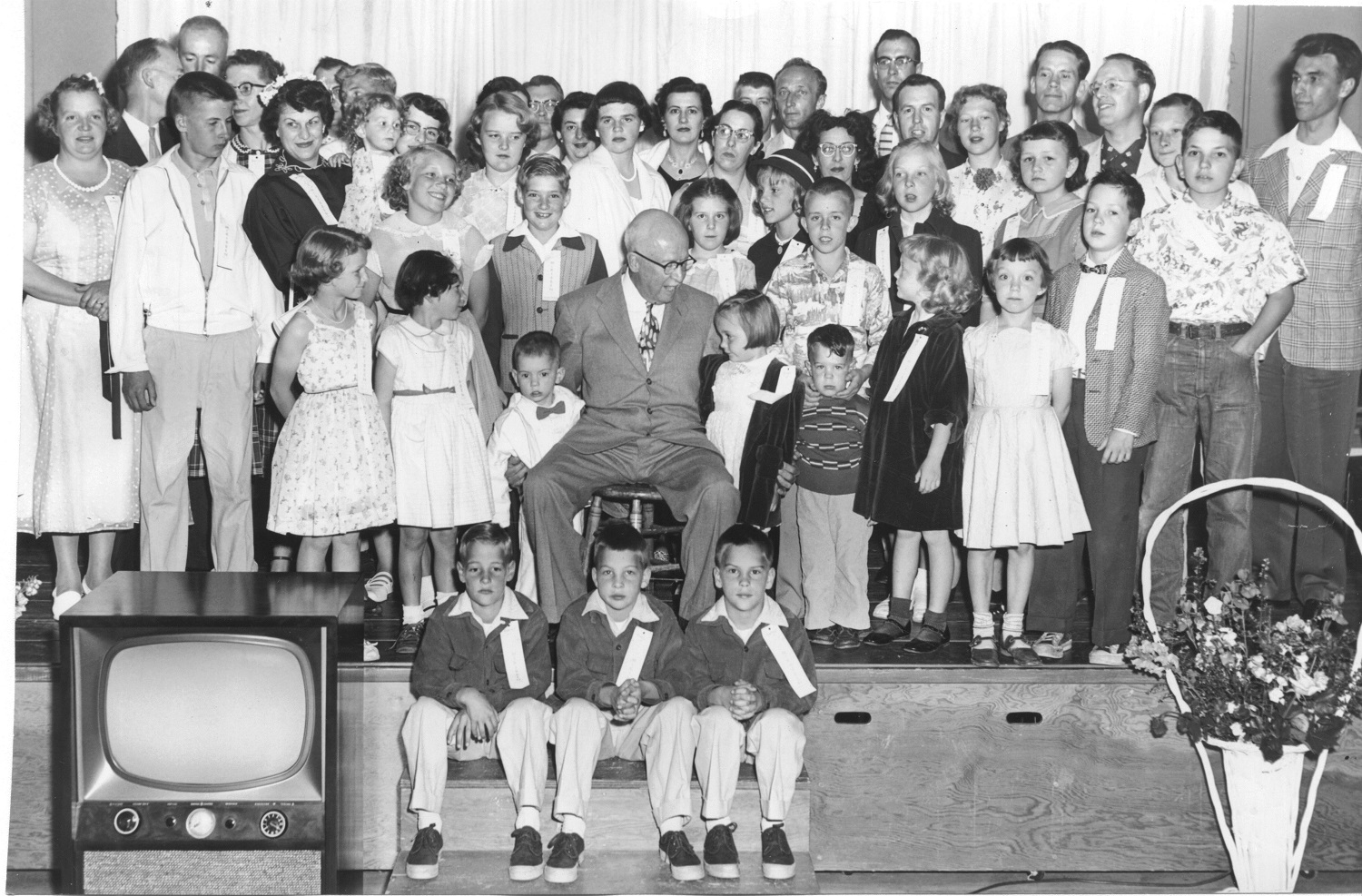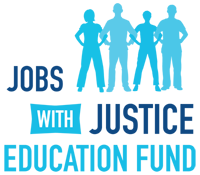
What did your grandparents do for a living?
What did your grandparents teach you about work?
How did your grandparents work lives shape who you are today?
Work is a huge part of our lives, from the jobs we do to the skills we develop and the careers we try to build. And just as significantly, the jobs that our grandparents had play a huge role in our family history, setting us on a path to who we’ve each become. While the world of work has changed dramatically from one generation to the next, what hasn’t changed is why we work – to earn a decent living, to take care of our loved ones, and to retire with dignity.
As we celebrate Labor Day and Grandparents Day in the same week, we want to take a look back at the jobs and hard work of our grandparents.
Join us in honoring our grandparents by sharing a photo or quick story about the way they worked »
Stories of the Way They Worked
Take a look back.
It Can Be Done
U.S. Representative Judy Chu (CA-27) shares how her grandfather overcame discrimination to create opportunities for her family.... read moreCaregiving as a Value
My grandmother worked in a clinic for government employees in Taiwan for over 40 years, first as a nurse and eventually as a clinic administrator. She has an energy about her; her spirit is incredibly active. Even when she’s simply listening, she’s completely engaged and taking everything in as if it holds the secrets of the universe. She’s been this way ever since I can remember. I believe it made her a wonderful nurse, leader and caregiver. She also never hesitated to offer wisdom: she urged me never to fear or avoid hardship, it’s always best to face it because it’s just part of life. And, no matter what, to always be kind and caring. “Caregiving is one of life’s greatest gifts.” And she didn’t mean receiving care, she meant being able to choose to give care to another person is a sign that you’re truly alive and connected to others. That ethic has kept her grounded, energized and joyful in her work and in life in general for 88 years and counting. I know many care workers today who live by that ethic, and I’m so grateful that one of them, Mrs. Sun, now supports my grandmother to live independently in her home in California near my uncle and sister. Ai-jen Poo is the Director of the National Domestic Workers Alliance and Co-director of the Caring Across Generations campaign... read more“If you want a fair day’s pay, you have to give a fair day’s work.”
Richard Trumka is President of the... read moreLet Your Work Speak for Itself
Remember the cafeteria lady at your high school? That was my grandmother, Juanita Lavelle Shuler. She raised five children and worked full time to support the family, as my grandfather was disabled. She was hard working and took her responsibilities very seriously. She went to work every day and cooked the food that kept the children and staff at Oregon’s Sandy High School moving. She took a lot of pride in her work. The most important lesson I learned from her about work was that if you work hard and do your best at whatever job you have, you can let your work speak for itself. You don’t have to do any self-promoting or bragging about all the wonderful things you’ve done – just let the hard work do the talking. Liz Shuler is the Secretary-Treasurer of the... read moreWhy Jobs and Lives with Dignity Matter
My grandfather was a laborer at R.T. French & Company in Rochester, NY, loading and unloading freight cars, and then working in the spices and birdseed areas where he prepared those commodities for mixing and packaging. It was hard, physical labor. He died at age 65 of lung cancer which the doctors felt was undoubtedly connected to his work because of the heavy dust infiltration in the area of the factory where he worked. My grandfather emigrated to the United States in 1923 from the Netherlands—he had no education beyond several years in a Dutch primary school. My grandmother worked after her arrival in Rochester, from Belgium in 1920, as a cleaning woman in an orphanage until 1925 when she had saved enough to buy a heavily mortgaged house on Mayberry Street. She ran a boarding house while raising my Aunt Jennie and my father, William. It was a very modest house with about eight boarders, mostly Dutchmen, who were immigrants and worked as laborers or chauffeurs or gardeners for the most part. My grandmother did everything—cooking, laundry, lunches to take to work, cleaning. In 1938, factory employment became possible and she worked at R.T. French preparing mustard and spices for marketing, and when the war came, she took special training to operate a lathe –and worked in a war production factory. After the war, she became a cleaning lady again at the University of Rochester. There was no labor union until 1948. My father was working in the laboratory of R.T. French that summer, earning $1.25—my grandfather who had worked at the company for more than 20 years... read moreHow My Grandparents Work in the Garment Industry Influences Me Today
Dr. David Weil, Administrator, Wage and Hour Division, U.S. Department of Labor describes how his grandmother Rose, and grandfather Abe, who both worked in the garment industry have influenced his... read moreWorking to Create a Better Life for Us and Future Generations
George Atallah, NFLPA Assistant Executive Director, External Affairs celebrates Labor Day and Grandparents Day by talking about how his grandparents helped to shape who he is... read moreIn Their Memory, Dedicating My Work for A Better Tomorrow
NFLPA Executive Director DeMaurice Smith shares memories of his grandparents and how they worked and lived their lives, and recognizes them as part of the Labor Day and Grandparents Day... read moreErnest McKibben and The Power of Community
My grandfather, Ernest McKibben, was a doctor in a small town in what was then the remote state of Washington. He was the only doctor in town, and there’s a picture of him somewhere surrounded by hundreds of people at a party in his honor. They’re all wearing t-shirts that say “I was a Dr. McKibben baby.” To me, he’s always been a potent reminder of the power of community. I grew up in suburbs, where there was less of that closeness and connection, and I always treasured the stories of the town where everyone knew everyone. I’ve been told that he sometimes “prescribed” sugar pills via an arrangement with the town’s pharmacist: he was so close to everyone in town that he knew when a placebo was the right treatment of choice. Needless to say, there are plenty of stories too about him treating people who paid what they could, and often not in cash. He finally retired as he neared his 90th birthday (his son, my uncle Ernest McKibben Jr. was already practicing in town), mostly because he could no longer drive well enough to make house calls, and they were a key part of his approach. In a world where we’ve decided that medicine, and most other things, can be dispensed virtually and anonymously, he reminds me of the kind of worlds we need to build (and rebuild). Bill McKibben is an author, environmentalist, and activist, co-founder of 350.org Photo of Dr. Ernest McKibben pictured with all the children he delivered in the shipbuilding town of Kirkland, Washington, courtesy of the author. Bill McKibben photo (c)... read moreThe Way They Worked
A project of
© Jobs With Justice Education Fund. This site also features some media available under a Creative Commons Attribution-Noncommercial license.


